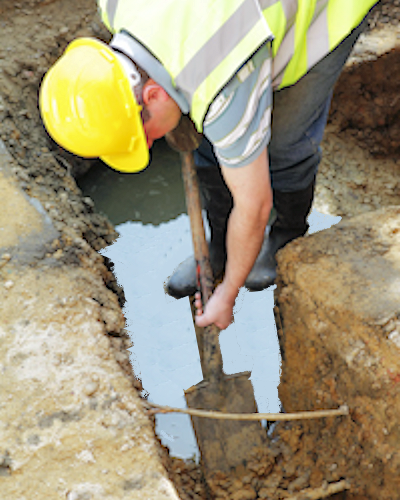Wet Conditions Hazards
Working in wet conditions is hazardous because you may become an easy path for electrical current. For instance, if you touch a live wire while standing in even a puddle of water, you will probably receive a shock.

Damaged insulation, equipment, or tools can expose you to live electrical parts. A damaged tool may not be grounded properly, so the housing of the tool may become energized, causing you to receive a shock. Improperly grounded metal switch plates and ceiling lights are especially hazardous in wet conditions. If you touch a live electrical component with an uninsulated hand tool, you are more likely to receive a shock when standing in water.
Remember: You don't have to be standing in water to be electrocuted. Wet clothing, high humidity, and perspiration also increase your risk of electrocution.
Additional Hazards
In addition to electrical hazards, other types of hazards are present at job sites. Remember that all of these hazards can be controlled.
- There may be chemical hazards. Solvents and other substances may be poisonous or cause disease.
- Frequent overhead work can cause tendinitis (inflammation) in your shoulders.
- Intensive use of hand tools that involve force or twisting can cause tendinitis in the hands, wrists, or elbows. Use of hand tools can also cause carpal tunnel syndrome, which results when nerves in the wrist are damaged by swelling tendons or contracting muscles.
Knowledge Check Choose the best answer for the question.
5-10. Improperly grounded _____ are especially electrically hazardous in wet conditions.
You forgot to answer the question!
